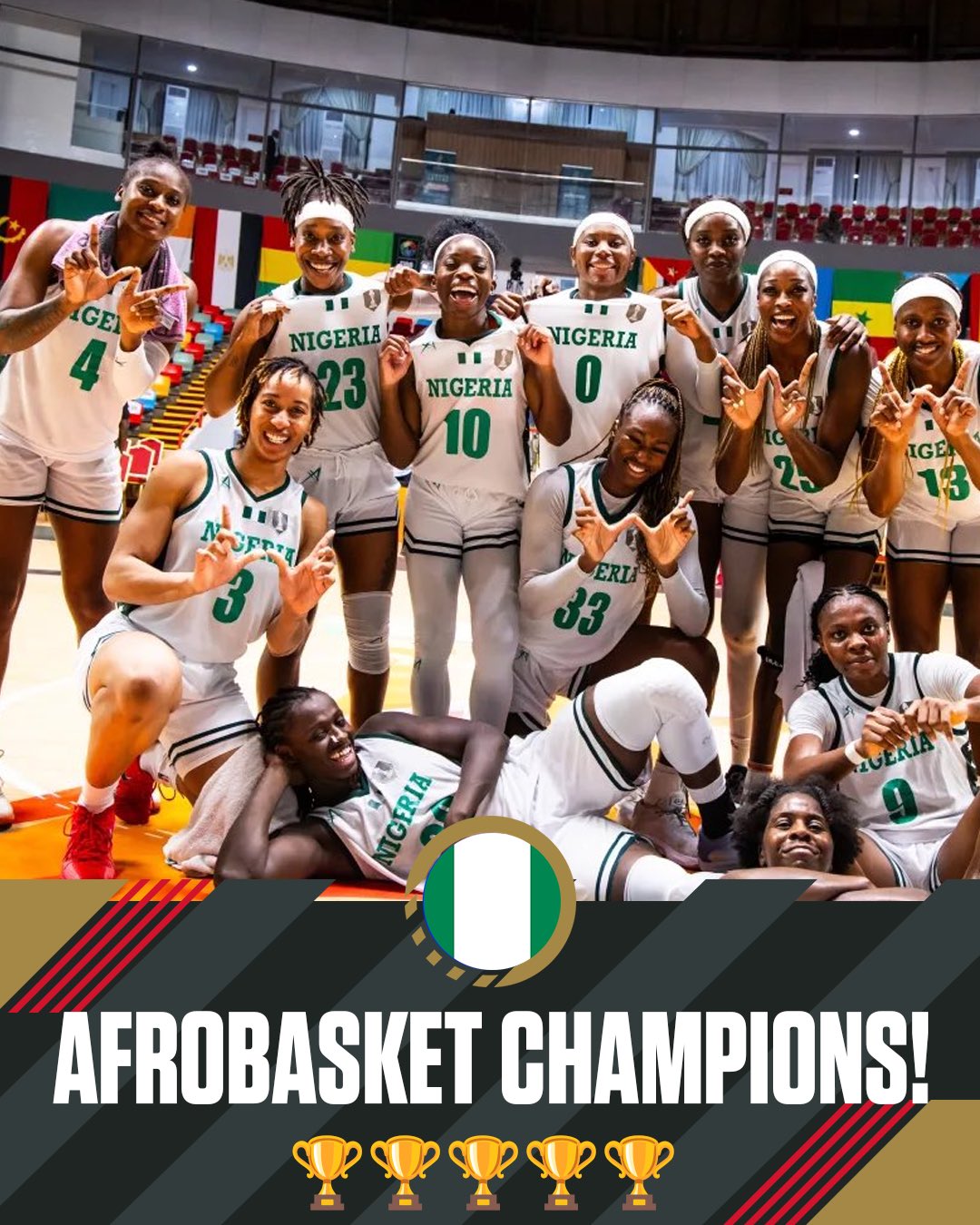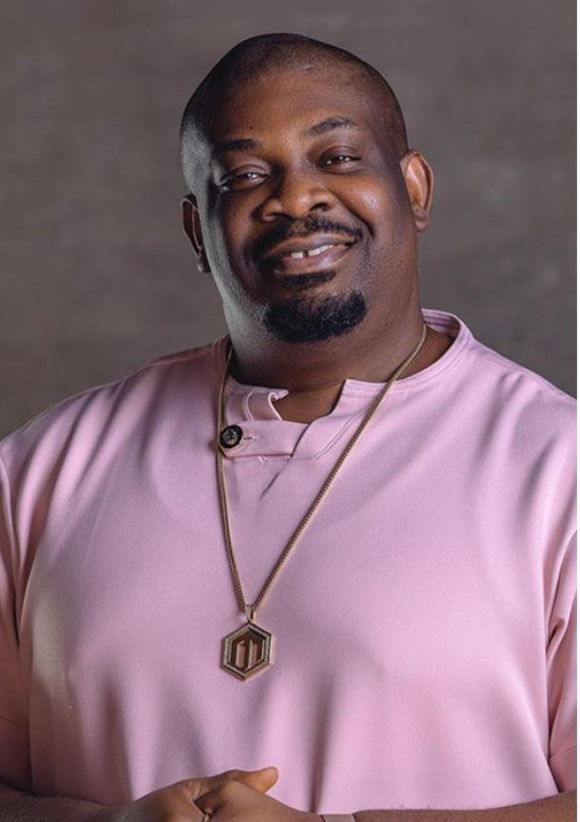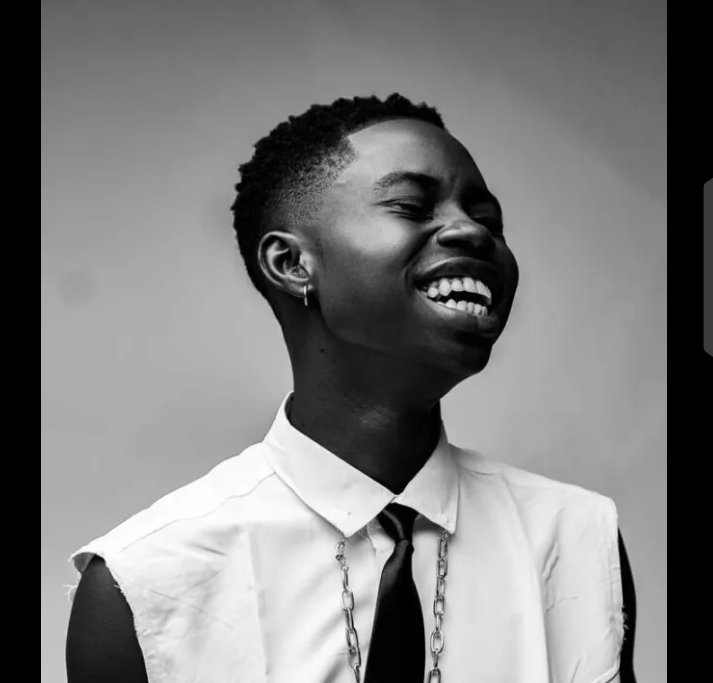
“Naija No Dey Carry Last” – Nigeria's Women Rewrite African Sports History with D’Tigress and Super Falcons’ Unbeaten Glory

In a year where global headlines have been marred by political unrest and economic anxiety, Nigeria’s women have stolen the spotlight—not in the halls of government, but on the courts and fields of Africa’s biggest sporting arenas.
The D’Tigress, Nigeria’s national women’s basketball team, blazed to their fifth consecutive AfroBasket title on Sunday night in Kigali, Rwanda, defeating Mali 78–64. Led by visionary coach Rena Wakama, the team made history yet again, extending an unbeaten streak that now spans a jaw-dropping 29 AfroBasket games since 2015, according to FIBA.
Their dominance was personified by Amy Okonkwo, who sealed the final with 19 points and 9 rebounds, earning the Most Valuable Player award. For observers, it’s no longer just about winning—it’s about redefining the blueprint for African women’s basketball through a potent mix of local and diaspora talent, disciplined coaching, and relentless mental drive.
Just days earlier, Nigeria’s Super Falcons clinched their 10th WAFCON title, overturning a 2–0 deficit to defeat host nation Morocco in a thriller that has gone viral across African social media. Unbeaten throughout the tournament, the Super Falcons silenced skeptics and reaffirmed their place as queens of African football—a legacy spanning decades.
Together, these two victories paint a compelling portrait of Nigeria’s unshakable grip on women’s sports in Africa—a dominance no longer accidental but engineered.
The back-to-back continental triumphs echo a strategic shift in coaching, scouting, and athlete development, especially among women. Rena Wakama, who also led the team to victory in 2023, has become a symbol of continuity and competence, a far cry from the instability that once plagued Nigerian federations. Similar praise has been heaped on Super Falcons head coach Justin Madugu, who was recently rewarded with a house and ₦50 million by the Adamawa State government following the WAFCON win.
But it hasn’t always been rosy.
The Super Falcons’ 2023 FIFA Women’s World Cup campaign was nearly derailed by pay disputes, with players threatening boycott over unpaid bonuses and allowances. The team’s gallant performance in Australia—knocking out host nation co-favorites Canada—was overshadowed by administrative chaos. However, this year’s shift in tone from the top, particularly with President Bola Tinubu’s personal intervention, including $100,000 cash rewards per player, suggests a growing political recognition of the value in investing in female excellence.
There’s also a psychological victory here: the reaffirmation of the Nigerian mantra “Naija no dey carry last”. It’s more than a catchphrase now—it’s becoming a statistical reality in African women’s sports.
In basketball, Nigeria remains the only country in AfroBasket history with five consecutive titles and a spotless run since 2015. In football, the Super Falcons’ record of 10 WAFCON titles remains untouched, while individual stars like Rasheedat Ajibade continue to light up Europe and inspire at home.
These milestones are not isolated flashes of brilliance. They’re signals of a rising structure, one where diaspora athletes, faith-based motivation, and state-level incentives are coming together to forge a resilient sporting culture.
As the world prepares for the 2026 FIFA Women’s World Cup and the 2027 AfroBasket qualifiers, one thing is clear: Nigeria’s women are not just participating anymore—they’re setting the pace.
And if the current trajectory holds, it won’t be long before the world starts asking not just how Nigeria is winning—but why they can’t seem to stop.


